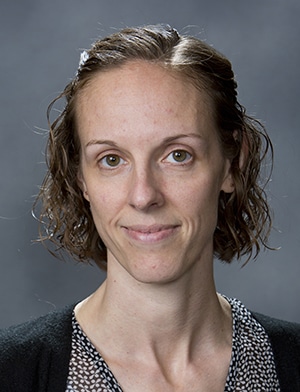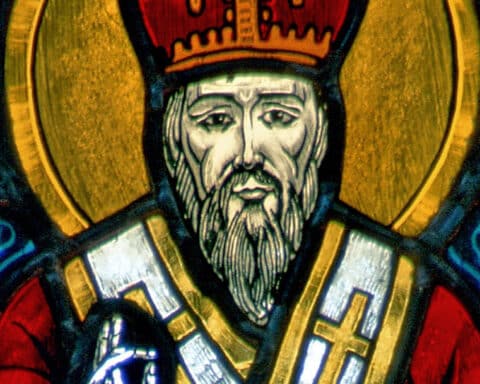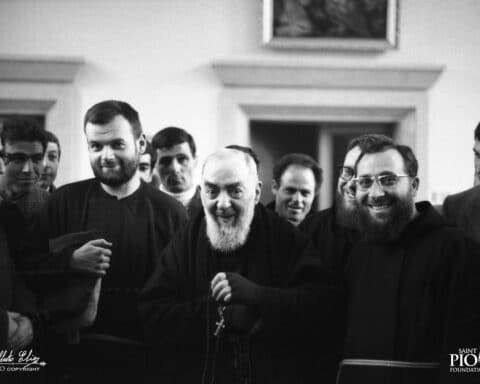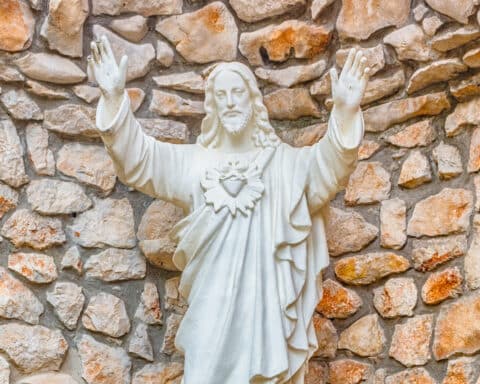
The readings for this Sunday remind me of an episode from the life of St. Maximilian Kolbe. I will recount this episode for you here, as I read it in Patricia Treece’s 1993 book, “A Man for Others.” She compiled this account from that of several eye-witnesses who survived Auschwitz and who were present during the selection of the victims the day Kolbe offered himself in place of Francis Grajowniczek. See if you recognize the readings for the 13th Sunday in Ordinary Time come to life in Kolbe. Treece writes:
| June 26 – 13th Sunday in Ordinary Time |
|---|
|
1 Kgs 19:16, 19-21 |
“Suddenly, there is movement in the still ranks. A prisoner several rows back has broken out and is pushing his way toward the front. The SS guards watching this Block raise their automatic rifles, while dogs at their heels tense for the order to spring. Fritsch and Palitsch, too, reach toward their holsters. The prisoner steps past the first row.
“It is Kolbe. His step is firm, his face peaceful. Angrily, the Block capo shouts at him to stop or be shot. Kolbe answers calmly, ‘I want to talk to the commander,’ and keeps on walking while the capo, oddly enough, neither shoots nor clubs him. Then, still at a respectful distance, Kolbe stops, his cap in his hands. Standing at attention like an officer of some sort himself, he looks Fritsch straight in the eye.
“‘Herr Kommandant, I wish to make a request, please,’ he says politely in flawless German.
“Survivors will later say it is a miracle that no one shoots him. Instead, Fritsch asks, ‘What do you want?’
“‘I want to die in place of this prisoner,’ and Kolbe points toward the sobbing Grajowniczek. He presents this audacious request without a stammer. Fritsch looks stupefied, irritated. Everyone notes how the German lord of life and death, suddenly nervous, actually steps back a pace.
“The prisoner explains coolly, as if they were discussing some everyday matter, that the man over there has a family.
“‘I have no wife or children. Besides, I’m old and not good for anything. He’s in better condition,’ he adds, adroitly playing on the Nazi line that only the fit should live.
“‘Who are you?’ Fritsch croaks.
“‘A Catholic priest.’
“Fritsch is silent. The stunned Block, audience to this drama, expect him in usual Auschwitz fashion to show no mercy but sneer, ‘Well, since you’re so eager, we’ll just let you come along, too,’ and take both men. Instead, after a moment, the deputy commander snaps, ‘Request granted.'”
I wonder what you saw as you read this episode?
Here are a few passages I see in Kolbe’s actions. I see Kolbe enfleshing the words of the psalm and the Letter of St. Paul to the Galatians: “I set the Lord ever before me; with him at my right hand I shall not be disturbed” (Ps 16:8). “For freedom Christ set us free. … Serve one another through love” (Gal 5:1, 13). A sacrifice like St. Maximilian Kolbe’s is only possible when one’s interior life is lived in communion with God! It is the love of God that Kolbe freely bears toward his neighbor that allows him to be so calm, and to peacefully offer himself up to death for a stranger.
And I see St. Maximilian showing us what Christ meant when he says in Luke: “No one who sets a hand to the plow and looks to what was left behind is fit for the kingdom of God (Lk 9:62, echoing 1 Kings 19). “Suddenly there is movement”; the movement of love. And Kolbe doesn’t look back.
Catherine Cavadini, Ph.D., is the assistant chair of the Department of Theology and director of the master’s in theology program at the University of Notre Dame.





